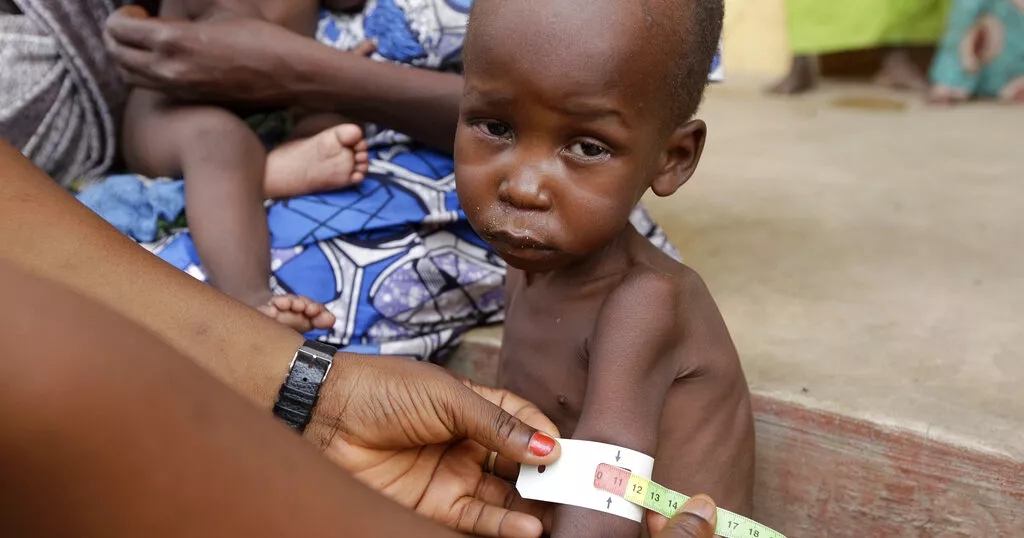Rising Malnutrition in Nigeria: The Impact of Climate Change and Conflict
3 min read

In northeastern Nigeria, the dual challenges of climate change and ongoing armed conflict are contributing to a staggering rise in severe malnutrition cases. The International Committee of the Red Cross (ICRC) has reported alarming trends, highlighting that families in the Lake Chad region are increasingly struggling to secure food for their children.
Recent statistics indicate a concerning 24% increase in malnutrition rates among young children compared to the previous year. This rise underscores the urgent need for intervention in a region already grappling with various crises.
Rabiatu Jubrilla, a mother from the area, shared her distressing experience at the ICRC’s stabilization clinic in Mubi, where her son was admitted for malnutrition treatment. She described how her healthy child deteriorated after she stopped breastfeeding him at 1 year and 9 months. “He could not even sit on his own when I brought him in,” she lamented. “We thought his weight loss was due to lack of breast milk.”
The protracted conflict in northeastern Nigeria is one of the primary drivers behind the escalating food crisis. Armed groups have displaced millions, decimated livelihoods, and severely restricted access to agricultural land. Paul Ezra, a farmer in Madagali village, explained the dire situation: “We don’t have enough farmland. Before, we used to go out in the fields to farm. But now, Boko Haram and other armed groups have taken over the bush.”
The violence has surged in recent months, with the ICRC’s Nigeria Head of Delegation, Yann Bonzon, noting that incidents of fighting in the Lake Chad region increased by 58% in the first half of 2024. This spike in violence corresponds with the rising number of individuals facing food insecurity, as communities become unable to cultivate crops or access markets.
In addition to conflict, the region’s heavy reliance on subsistence farming makes it particularly vulnerable to the effects of climate change. Irregular rainfall patterns have disrupted food production, exacerbating an already precarious situation. This year, heavy floods devastated crops, washing away seeds and hopes for a successful harvest after an arid lean season. The ramifications are dire, as Abubakar Bello Duhu, a local farmer, explained: “We have people who fainted and are at the hospital. Others have died because there is not enough to eat.”
The ICRC projects that over six million people in the Lake Chad region will face food shortages in the coming months, driven by the dual impacts of armed conflict and climate change. As the situation deteriorates, the need for humanitarian assistance becomes increasingly critical.
Addressing the complexities of food insecurity in northeastern Nigeria requires a multi-faceted approach. It is essential to not only provide immediate relief to those affected by malnutrition but also to develop long-term strategies aimed at stabilizing the region. This includes restoring agricultural production, securing access to markets, and promoting resilience against climate impacts.
As communities continue to grapple with these challenges, the stories of families like Rabiatu’s serve as a poignant reminder of the urgent need for intervention and support. The interplay of climate change and conflict has created a cycle of vulnerability that threatens the health and futures of countless children across the region.
In summary, the escalating malnutrition rates in Nigeria’s northeastern region are a stark reflection of the intertwining crises of climate change and armed conflict. As the international community watches, it is crucial to prioritize both immediate humanitarian aid and long-term strategies to rebuild and stabilize affected communities. Without concerted efforts to address these issues, the cycle of poverty, malnutrition, and conflict is likely to continue, further endangering the lives of many.
WhatsApp us